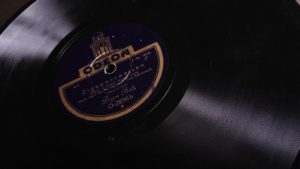A way of investing in real estate in Chicago without putting any money down, with tips on how to finance a deal, applying for funding and taking financial responsibility. Put out by the Chicago Action Investors.
A way of investing in real estate in Chicago without putting any money down, with tips on how to finance a deal, applying for funding and taking financial responsibility. Put out by the Chicago Action Investors.
 A food trend is happening nationwide and now businesses in Chicago are part of it. Starting as a small basement project in Chicago back in the summer of 2013, a few best friends who were broke and “couldn’t believe there wasn’t a better protein bar out there” got together. It was simple and it was honest.
A food trend is happening nationwide and now businesses in Chicago are part of it. Starting as a small basement project in Chicago back in the summer of 2013, a few best friends who were broke and “couldn’t believe there wasn’t a better protein bar out there” got together. It was simple and it was honest.
They were told their packaging wouldn’t work: not appetizing, just boring facts. But that’s what they did and today they just list the four ingredients on their packages:
Or:
And now, it has been purchased by Kellogg’s. For $600m.
According to a recent Forbes article by contributor Peter Wilkins, this transaction is indicative of “a growth signal for one of Chicago’s booming new industries: simple food and beverage. Simple food and beverage companies are ones that focus on producing and distributing foods with whole, pronounceable ingredients that are transparently presented and are meant to be nutritionally good for you.”
And it seems to be what consumers want. They want to be able to pronounce and recognize each ingredient on a label and are seeking out “less is more.” The businesses that are providing this seem to be increasing their revenue around three times faster, while encountering a market share increase by 1.7% with their counterparts’ share simultaneously declining 0.7%.
Other Chicagoan examples include: SkinnyPop, Mike’s Hard, Peapod, Protein Bar and GrubHub.
 Following the hurricane that ravaged Puerto Rico, Chicago is anticipating welcoming a huge amount of inhabitants from the destruction caused by Hurricane Maria. Already the region has taken in over 1,500 individuals but many more are planning to follow suit.
Following the hurricane that ravaged Puerto Rico, Chicago is anticipating welcoming a huge amount of inhabitants from the destruction caused by Hurricane Maria. Already the region has taken in over 1,500 individuals but many more are planning to follow suit.
And this might not be temporary. According to Puerto Rican-born US Rep Luis Gutierrez, D-Chicago, just like Houston accepted Hurricane Katrina’s New Orleaneans, Chicago could do the same. They might end up moving to Chicago permanently.
As such, the city is getting prepared. As Gutierrez pointed out, nothing has been put in place and there are already more than 1,500 extra people. What needs to happen is to accommodate these individuals with education, health and social services, since “if you’re going to be a sanctuary city, you’ve got to offer sanctuary.”
At this point, hundreds of thousands are expected to permanently leave the island in search of a new home and stable life, with “certainly thousands” choosing Chicago given its welcoming reputation and large Latino community.
 In conjunction with the Chicago Architecture Biennial, Founding Sponsor BP and Signature Education Partner Chicago Architecture Foundation (CAF), the BP Student Design Competition is returning this fall.
In conjunction with the Chicago Architecture Biennial, Founding Sponsor BP and Signature Education Partner Chicago Architecture Foundation (CAF), the BP Student Design Competition is returning this fall.
This began in 2015 (the first ever Chicago Architecture Biennial) and, like that one, aspiring artists and architects from the city’s elementary and high schools will be able to create projects challenging around this year’s theme, “Make New History.” Entrants will have to design solutions for two different Chicago-centric challenges, focusing on how our every day lives can be transformed by the built environment.
As Mayor Rahm Emanuel explained:
“The BP Student Design Competition is a unique hands-on experience for Chicago students to challenge their creative thinking and develop their passion in architecture and design. The educational partnership with the Chicago Architecture Foundation engages our young artists and architects by giving them the opportunity to participate in a range of opportunities in neighborhoods across the city.”
This year also new educational initiatives were proposed by the Chicago Architecture Biennial (and CAF), in an attempt to expand its reach to communities throughout the city.
 Earlier this week, the South Rock Island celebrated Illinois Township Day – the second annual event. The idea behind the Day is to publicize the programs the township has to offer.
Earlier this week, the South Rock Island celebrated Illinois Township Day – the second annual event. The idea behind the Day is to publicize the programs the township has to offer.
With a picnic, K-9 demonstrations and “meet and greet,” the day went off wonderfully, and was a great community event for all. As well, it was used as a memorial dedication of green space for the late Matthew F. Parker, Jr. a former Rock Island Township Trustee who served the community for more than three-and-a-half decades.
The day’s man focus was Safety of Residents, with participation from Illinois Child Protection Identification Program (CHIP) representatives. CHIP takes information about children should they need to assist authorities if something happens to their child, giving parents peace of mind. The idea is to identify and locate the child should something happen.
 It seems that sometimes the things you should see most are most easy to miss, at least according to Amy Bizzarri who just published her book 111 Places in Chicago That You Must Not Miss. While going through treatment for breast cancer, she found many places – 111 to be exact – that are “must-sees” in Chicago.
It seems that sometimes the things you should see most are most easy to miss, at least according to Amy Bizzarri who just published her book 111 Places in Chicago That You Must Not Miss. While going through treatment for breast cancer, she found many places – 111 to be exact – that are “must-sees” in Chicago.
Many of these places are very “easy to miss,” like Hero Coffee Bar, located at 22 E. Jackson Boulevard. Bizzarri says she just loves watching people “come across it for the first time.”
Bizzarri did her research together with Photographer Susie Inverso and the two of them found a whole slew of “beautiful, funky, delicious, unusual, off-kilter, unique, and truly wonderful places for this new guidebook.”
In this video, Tech Insider shows the best views of Chicago from the John Hancock Center. Situated on the 94th floor is an observation deck with a TILT (special attraction) enabling you to lean out over the city at approximately 1,000 feet.
 Chicago-based Reverb.com is doing really great things. Just recently the company (that sells instrument and music gear online) launched its e-commerce site for music collectors. Specializing in vinyl it is anticipated that this move will bolster the firm’s success, when it goes live later this year.
Chicago-based Reverb.com is doing really great things. Just recently the company (that sells instrument and music gear online) launched its e-commerce site for music collectors. Specializing in vinyl it is anticipated that this move will bolster the firm’s success, when it goes live later this year.
And with an injection of $15 million in funding, Reverb is clearly making a name for itself in the tech industry. Big names like Max Levchin (co-founder of PayPal) and Adam Bain (ex-COO at Twitter) are making investments in the firm which will be used for new employee hires as well as the expansion of the company, worldwide.
Not surprisingly therefore, the company also landed a place on Inc. Magazine’s annual Inc. 500 list.
 A few years ago everyone was trying to work from home. It knocked out the commute, saved time and let you stay in your pajamas all day. But then the trend started backfiring a bit and people craved the interaction between others and being forced to get dressed rather than be on the computer in their bedroom. Indeed, at that time it was found that people craved the stimulation of the office environment and the networking opportunities it offered.
A few years ago everyone was trying to work from home. It knocked out the commute, saved time and let you stay in your pajamas all day. But then the trend started backfiring a bit and people craved the interaction between others and being forced to get dressed rather than be on the computer in their bedroom. Indeed, at that time it was found that people craved the stimulation of the office environment and the networking opportunities it offered.
Thus, the We-Work/Hub situation was born. And the best of both worlds came into action. For those Chicagoans looking for options, today they can choose from: WeWork Chicago (for $350-750 a month in 6 locations); Level (with different options available at there 4 locations – one close to Willis Tower and its thriving community; indoor bike racks at another and cheap fees – starting from a mere $50 per month) and Industrious Chicago (which provides a large space right in the center of River North across from the Loop. As well as office facilities this has lounge area, phone booths and relaxation rooms as well as a café).
These spaces are obviously thriving since Level Office just signed a deal for a 110,000 square foot office tower at Welton and 16th Streets.
 In an attempt to help Chicagoans save money on energy bills, the Citizens Utility Board (CUB) joined forces with ComEd and the Illinois Commerce Commission and the Environmental Law and Policy Center. Educating the public on how to save money from their energy bills, the first piece of advice was to invest in a smart thermostat.
In an attempt to help Chicagoans save money on energy bills, the Citizens Utility Board (CUB) joined forces with ComEd and the Illinois Commerce Commission and the Environmental Law and Policy Center. Educating the public on how to save money from their energy bills, the first piece of advice was to invest in a smart thermostat.
A recent announcement was made by these organizations that a new incentive will be put into place, giving customers an immediate rebate for the purchase of a smart thermostat which can be programmed to automatically adjust to specific living arrangements. In other words, instead of having the air conditioner on 24/7, the thermostat will raise a few degrees while you’re out of the house and lower, just before you return.
It’s not just a smart thermostat that will do this. smartphones and (Amazon) Alexa will do the same job. But the advantage of a smart thermostat is that they actually figure out how to adapt to their users’ behavior, identify patterns and thereafter manage heating and cooling systems which will significantly reduce energy costs.